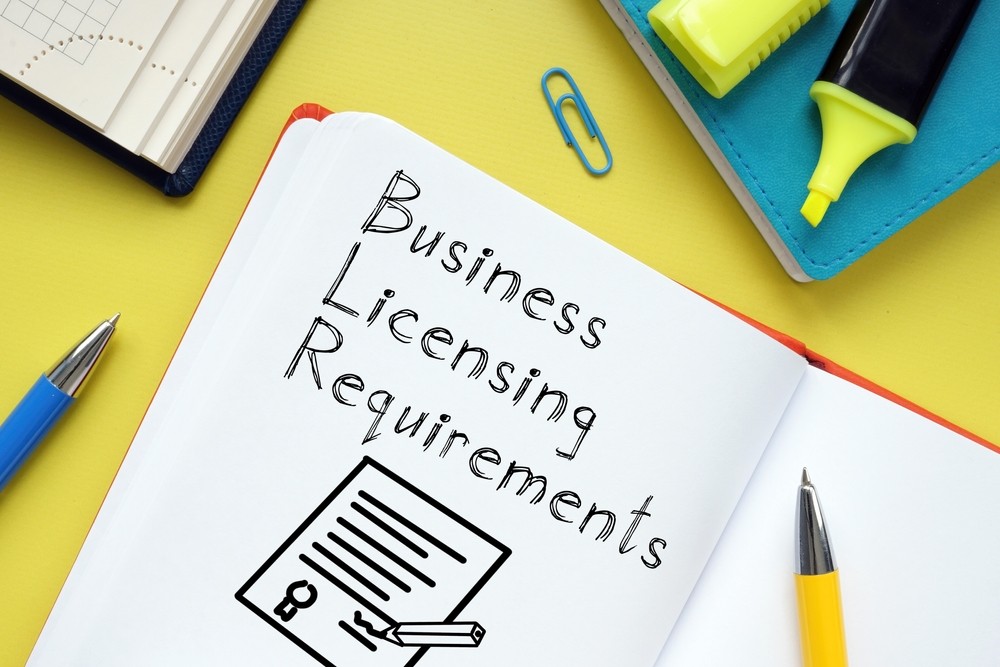- Mon - Fri: 8.30 AM - 5:00 PM
- 26565 Agoura Rd., 200, Calabasas, CA 91302
- 818-884-8075

Do You Need a License to Sell Leads? Legal & Compliance Guide
Do You Need a License to Sell Leads in Legal & Regulated Industries?
Do you need a license to sell leads in industries like law, finance, or healthcare? The answer depends on your niche, your location, and how you collect and distribute consumer data—but staying compliant is essential for long-term success. This article will explore the legal requirements for selling leads, including licensing rules, best practices, and how to remain compliant.
The need for a license to sell leads depends on the industry and type of data being sold. While selling leads generally does not require a specific license, businesses may need:
- A General Business License: Most states require businesses to register and obtain a general business license.
- Data Protection Compliance: Lead sellers must follow consumer privacy laws like the CCPA (California Consumer Privacy Act) and GDPR (General Data Protection Regulation).
- Industry-Specific Licensing: If selling financial, insurance, or legal leads, additional compliance measures may apply.
Industry-Specific Licensing Requirements
- Legal Leads: Selling law firm lead generation services must comply with bar regulations.
- Financial Leads: Mortgage and insurance leads may require state licensure.
- Health & Medical Leads: Must follow HIPAA (Health Insurance Portability and Accountability Act).
Can Lawyers Pay for Leads?
A common legal industry question is: Can lawyers pay for leads? The answer is yes, but with restrictions.
Legal & Ethical Considerations for Attorneys
ABA Rule 7.2 allows lawyers to pay for advertising and lead generation, but fee-splitting with non-lawyers is prohibited.
- State Bar Compliance: Some states have strict rules on buying leads, especially when it involves client solicitation.
- Best Practice: Attorneys should only buy leads from bar-compliant sources that use ethical lead generation techniques.
Regulations Affecting Lead Sales
Selling leads, especially legal leads, is subject to multiple compliance regulations. Ignoring these laws can result in fines, penalties, or lawsuits.
Key Laws Governing Lead Sales
- Telephone Consumer Protection Act (TCPA): Regulates cold calling and text message marketing.
- California Consumer Privacy Act (CCPA): Protects consumer data and requires opt-in consent.
- General Data Protection Regulation (GDPR): Regulates the sale of consumer data in the EU.
- CAN-SPAM Act: Governs email marketing for lead generation businesses.
Selling Legal Leads vs. Other Industries
- Legal Leads: Must comply with bar regulations and ethical marketing standards.
- Financial Leads: May require licensing for mortgage, insurance, or loan leads.
- Medical Leads: Must protect patient privacy under HIPAA.
How to Sell Legal Leads & Stay Compliant
If you plan to sell law firm leads, follow these steps to ensure compliance:
Best Practices for Selling High-Quality Leads
- Use Verified Lead Sources: Leads should be generated through ethical marketing methods.
- Provide Lead Transparency: Clearly disclose how leads are collected.
- Follow Opt-In Consent Laws: Ensure users agree to share their information.
Where to Sell Leads Legally
- Partner with the Best Lead Providers for Lawyers: Work with reputable lead marketplaces.
- Use Legal Directories: Platforms like Legal Brand Marketing, FindLaw, and Lawyers.com connect clients to attorneys.
- Leverage PPC and SEO: Optimize digital marketing strategies for law firm lead generation.
How Much Can You Earn Selling Leads?
Lead pricing varies by industry, with legal leads being among the most valuable.
Understanding the Cost of Legal Leads
Practice Area | Cost Per Lead |
Personal Injury | $150 – $500+ |
Mass Torts | $300 – $1,000+ |
Medical Malpractice | $200 – $800 |
Family Law | $50 – $200 |
Bankruptcy Law | $75 – $300 |
Revenue Potential for Lead Sellers
- Exclusive vs. Shared Leads: Exclusive leads are more expensive but convert better.
- High-Value Niches: Selling leads in personal injury, mass torts, and real estate law generates higher revenue.
- Scalability: Businesses that automate lead generation can earn recurring revenue.
Are Legal Leads a Profitable Business?
Selling leads can be highly profitable, but it requires compliance with industry regulations and ethical best practices.
Pros & Cons of Selling Legal Leads
Pros:
- High demand for quality law firm leads.
- Recurring revenue potential.
- Scalable business model.
Cons:
- Strict compliance regulations.
- High competition in the lead generation industry.
- Some lead providers engage in unethical marketing tactics.
Alternatives to Selling Legal Leads
If selling leads isn’t ideal, consider other legal marketing services:
- SEO & PPC for Attorneys: Help law firms generate leads organically.
- Referral Partnerships: Connect firms without selling direct leads.
- Content Marketing & Advertising: Offer lead generation consulting.
Next Steps for Lead Sellers & Law Firms
If you’re considering selling legal leads, take these steps:
- Check state licensing requirements for your industry.
- Ensure compliance with consumer privacy laws.
- Use ethical lead generation strategies to avoid penalties.
- Diversify your revenue streams by combining paid and organic lead generation.
For more insights, check out our guides on SEO for law firms, PPC for attorneys, and ethical lead generation practices.
Is a License Required to Sell Leads? Final Thoughts for Compliance
Selling legal leads can be a profitable and scalable venture—but only if it’s done within ethical and regulatory guidelines. Whether you’re targeting law firms, financial institutions, or medical providers, understanding the licensing and compliance landscape is essential. From TCPA to GDPR and ABA rules, staying compliant protects your business and builds trust with your clients. Focus on transparency, consent, and ethical sourcing to thrive in the lead generation industry.
Launch Your Legal Lead Business the Right Way
If you’re ready to start selling legal leads, make sure you’re backed by compliance and industry best practices. Legal Brand Marketing offers law firms exclusive legal lead generation services that meet ethical guidelines and deliver high-quality prospects. Whether you’re a lead seller or a law firm looking to buy, work with a trusted partner that prioritizes transparency and results.
Contact us today to connect with high-quality, compliant legal leads and grow your client base effectively.
Frequently Asked Questions About Lead Licensing & Compliance
1. What happens if I sell leads without following data privacy laws?
You could face significant legal consequences, including fines, lawsuits, or being banned from certain advertising platforms. Always comply with regulations like GDPR, CCPA, and TCPA.
2. Can I sell leads across multiple industries at once?
Yes, but you must ensure compliance with each industry’s specific legal and ethical standards, especially when dealing with legal, financial, or medical data.
3. Do exclusive legal leads require additional licensing or approval?
No additional license is typically needed for exclusivity, but you must still follow bar regulations and ensure leads are ethically sourced and not shared with other firms.
4. Is it legal to outsource lead generation to another company?
Yes, as long as the outsourced provider adheres to applicable laws and your partnership doesn’t involve fee-splitting with lawyers or violate solicitation rules.
5. Are there marketing practices I should avoid when selling legal leads?
Avoid misleading claims, cold calling without consent, or sharing personal data without user opt-in. Ethical lead generation is key to avoiding legal issues and bar violations.
Key Takeaways on Licensing and Compliance for Lead Sellers
- Licensing requirements vary by industry and state, especially in regulated sectors like law, finance, and healthcare—always verify local rules.
- Compliance with data privacy laws such as CCPA, GDPR, and TCPA is essential when collecting, storing, or selling leads.
- Attorneys can legally buy leads but only from bar-compliant sources that avoid solicitation and fee-splitting.
- Lead transparency and ethical sourcing are not optional—they protect your reputation and reduce legal risk.
- Selling legal leads can be highly profitable if done correctly, but it requires careful attention to compliance, opt-in consent, and quality assurance.





